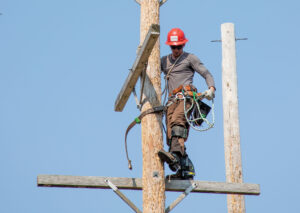The pitch sounded too good to be true. A consumer-member got a call from someone claiming to be from the co-op. She was told she’d overpaid her utility bill and to get her refund they needed her financial information.
It’s an innovation by fraudsters that flips the script on the typical utility scam. Thankfully, the member wasn’t fooled and called her co-op.
For scammers, it’s all about offering an incentive and creating a sense of urgency.
“They’re savvy, and their pitches are so believable that victims feel pressured, rushed and convinced that they’re the real deal,” said Monica Martinez, executive director of Utilities United Against Scams (UUAS), a consortium of more than 150 utilities and their respective trade associations. “There are many ways to do this, and scammers are changing their methods all the time.”
Impersonation fraud has cost consumers billions, according to the Federal Trade Commission. Between October 2020 and September 2021, losses surged 85 percent year over year.
Lately, utility scammers are adapting their tactics to capitalize on consumer vulnerabilities created by COVID-19, mainly a surge in Americans’ dependence on internet communications for things like school, work and commerce.
Scammers often demand payment through platforms such as PayPal, Cash App and Zelle. While the companies have processes for reporting a potential fraud, “it doesn’t always mean that when you make a report, you will be refunded your money,” Martinez said.
Electric co-ops are particularly effective at shutting down scams because of their good reputation with local media and community members.
A knowledgeable consumer, she said, is the best way to fight fraud.
“No one knows when or how a scammer will appear,” she said. “So it’s important for utility consumers to understand the types of threats that are out there and to remember that we all could be targeted at any time.”








